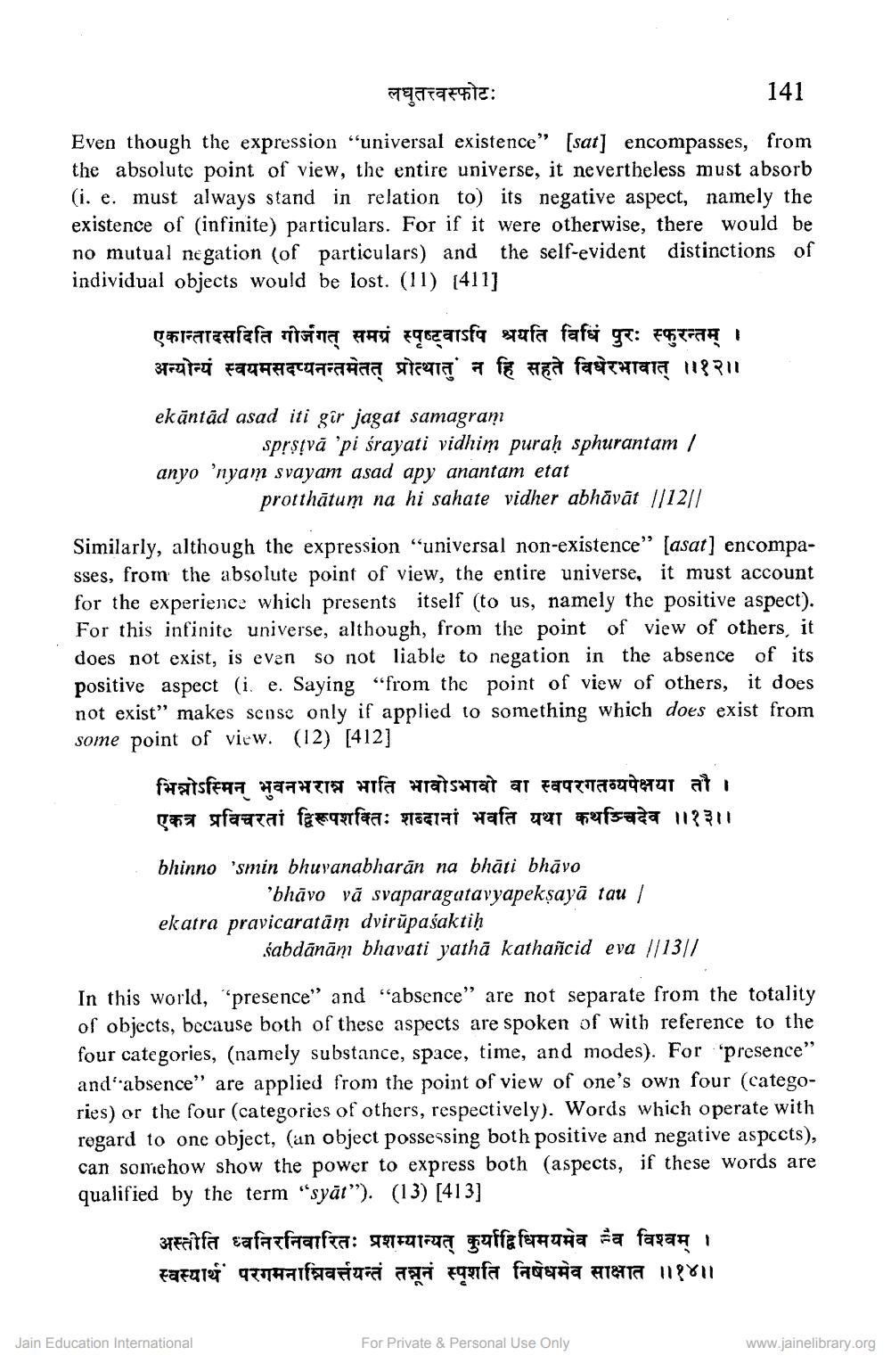________________
लघुतत्त्वस्फोटः
141
Even though the expression "universal existence" [sat] encompasses, from the absolute point of view, the entire universe, it nevertheless must absorb (i. e. must always stand in relation to) its negative aspect, namely the existence of (infinite) particulars. For if it were otherwise, there would be no mutual negation (of particulars) and the self-evident distinctions of individual objects would be lost. (11) [411]
goratzafafa mising and eqczaısfq «fa fafü ge: AḤ | अन्योन्यं स्वयमसदप्यनन्तमेतत् प्रोत्थातुं न हि सहते विधेरभावात् ॥१२॥
ekäntad asad iti gir jagat samagram
spṛṣṭvā 'pi śrayati vidhim puraḥ sphurantam / anyo 'nyam svayam asad apy anantam etat
protthātum na hi sahate vidher abhāvāt ||12||
Similarly, although the expression "universal non-existence" [asat] encompasses, from the absolute point of view, the entire universe, it must account for the experience which presents itself (to us, namely the positive aspect). For this infinite universe, although, from the point of view of others, it does not exist, is even so not liable to negation in the absence of its positive aspect (i. e. Saying "from the point of view of others, it does not exist" makes sense only if applied to something which does exist from some point of view. (12) [412]
भिन्नोऽस्मिन् भुवनभरान भाति भावोऽभावो वा स्वपरगतव्यपेक्षया तौ । एकत्र प्रविचरतां द्विरूपशक्तिः शब्दानां भवति यथा कथञ्चिदेव ||१३||
bhinno 'smin bhuvanabharan na bhāti bhāvo 'bhāvo vă svaparagatavyapekṣayā tau | ekatra pravicaratām dvirūpaśaktiḥ
sabdānām bhavati yathā kathañcid eva ||13||
In this world, "presence" and "absence" are not separate from the totality of objects, because both of these aspects are spoken of with reference to the four categories, (namely substance, space, time, and modes). For 'presence" and absence" are applied from the point of view of one's own four (categories) or the four (categories of others, respectively). Words which operate with regard to one object, (an object possessing both positive and negative aspects), can somehow show the power to express both (aspects, if these words are qualified by the term "syat"). (13) [413]
zestfa safarfaenfra: anıraą gaffefonuna da favan | स्वस्यार्थ परगमनान्निवर्त्तयन्तं तन्नूनं स्पृशति निषेधमेव साक्षात ॥ १४॥
Jain Education International
For Private & Personal Use Only
www.jainelibrary.org




